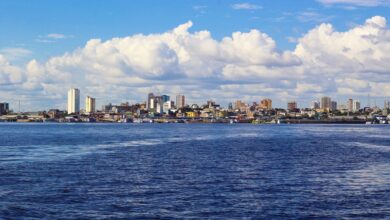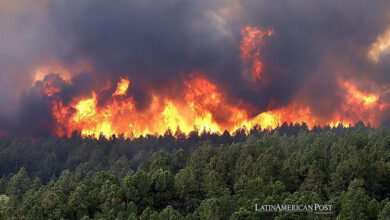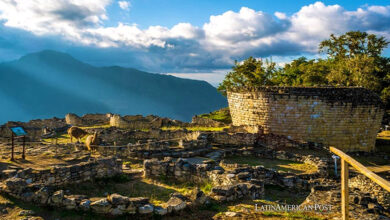Why is Earth Day important?
In the midst of a climate crisis and a pandemic that has shown how unprepared we are in terms of environmental care, we seek to become literate about climate change and its consequences.

Every April 22, Earth Day is celebrated internationally in order to pay tribute to our home and raise awareness around the environmental problems that overpopulation and pollution bring. Photo: Pixabay
LatinAmerican Post | Vanesa López Romero
Listen to this article
Leer en español: ¿Por qué es importante el Día de la Tierra?
Why do we commemorate Earth Day?
Every April 22nd, for more than 50 years, Earth Day has been celebrated internationally in order to pay tribute to our home and raise awareness around the environmental problems brought about by overpopulation, pollution, deterioration of the ozone layer, etc. Likewise, on this date different meetings are held between world leaders, environmental and international organizations and the civil community to put on the table the problems and possible solutions that can be put into action to stop climate change and consequently the deterioration of the resources that our planet offers us.
Taking into account the direct dependence that human beings have on the earth, this celebration and commemoration is extremely important to understand the problems, reasons and consequences of affecting the Earth's ecosystems, since environmental deterioration implies a deterioration of those who inhabit it. In the words of the Secretary General of the UN, António Guterres, "Ecosystems support all forms of life on Earth. The health of our ecosystems directly depends on the health of our planet and its inhabitants. Restoring our damaged ecosystems will help to end poverty, to combat climate change and prevent mass extinction . "
How do we celebrate Earth Day 2021?
Every year Earthday.org , the organization in charge of commemorating this date, carries out a series of activities to raise awareness in civil society throughout the world and in governments and world leaders. On this occasion, it was decided to hold three parallel summits that take place from Monday, April 20th until today, in which activists, leaders and influential people meet to discuss issues such as climate literacy, environmental justice and other issues focused on the weather.
This year the celebration has focused on the first of these issues, because in order for governments to give effective responses to these problems it is necessary for citizens to demand them, so climate literacy plays a leading role in this race against climate change that constantly threatens the extinction of species, ecosystems and even the human race .
For Kathleen Rogers, president of Earthday.org, in this year's celebration "we have an important opportunity to challenge world leaders to see climate change for what it is: a pressing global security threat ."
And it is more than clear as time goes by that environmental diplomacy is slow, but climate change is not and neither is it forgiving . Proof of this is the Escazú Agreement in Latin America and the Caribbean, which by the way comes into force today, but to which only 11 of the 22 signatories and of the 46 in the region have ratified its participation . Given this, we find an unpromising panorama in which the governments of the region take little or no action to protect the varied ecosystems that exist in it, to the point that the Amazon, known as the lung of the world, produces more dioxide carbon than oxygen.
What individual actions can I take?
Although the outlook looks bleak, it is necessary to remember that individual actions can become very influential if they take a collective and demanding position before our governments regarding climate policies and regulations for large industries and businesses. We just have to remember that Earth Day was initially born as a protest carried out in the United States on a day like today but in 1970. At that time social pressure fulfilled its objective and today we also celebrate. So, today is a good day to remember that, in the midst of an environmental crisis , individual acts such as recycling, opting for an ethical and responsible diet with the environment, and even going out to demonstrate can generate a change .




